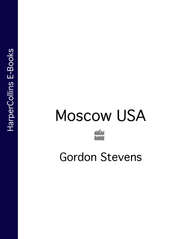По всем вопросам обращайтесь на: info@litportal.ru
(©) 2003-2024.
✖
Peace on Earth
Автор
Год написания книги
2018
Настройки чтения
Размер шрифта
Высота строк
Поля
‘And how will the German public react?’
Sharaf was realistic. ‘At first they won’t care a damn, they won’t even notice. As the first death draws near, however, they’ll begin to think about it, about what it means.’
They would begin to sense the fear, Nabil knew. ‘How long will it take?’ he asked, partly out of consideration of those he was about to sacrifice, partly out of necessity for his timetable.
‘The key,’ Sharaf began to explain, ‘is water. On average, the human body can only survive ten to fifteen days without water, so a hunger strike with no food or water would be over very quickly.’ Too quickly for them, he was thinking, though he did not say so.
‘And if the person took water but no food?’
‘A lower limit of thirty to forty days, an upper limit of approximately seventy to seventy-five.’
‘Is there any way of calculating the probable length of a hunger strike given the individual’s personal characteristics, his weight and body type for example?’
Sharaf guessed the reason for the question. ‘Only within broad outlines. It depends on more factors than just body size and shape. The amount of fat on the body is important. Women therefore tend to survive longer than men, but it also depends on how much exercise the person takes, even the temperature of the room. In the IRA hunger strike of 1981, Bobby Sands was expected to die after about fifty days but survived sixty-five. Joe McDonnell lasted sixty-one, but Kieran Doherty took seventy-three days to die.’
Nabil was staring across the room. ‘So what do you suggest?’
Sharaf’s recommendation was brutal and straightforward. ‘We start one a week, as the IRA did in Belfast. That way the public are made aware of the campaign as each person joins it, that way they are more exposed to the pressure as the deaths become imminent or the people start dying.’ He realised Nabil was looking at the photograph on the desk at the side of the window. ‘In a way,’ he said, ‘the pressure only comes after the first death.’
Nabil took a long time to reply. ‘So the really important person is the second one to die?’ he said at last.
‘Yes. The first death is a necessary sacrifice; it is the second death which is important.’
Nabil was nodding slowly, thinking of it, thinking of the fear it would bring, of the full awesomeness of the pressure he had asked Sharaf to set in motion. ‘You have arranged the second group as I requested?’ he asked.
‘Yes.’
‘And they have all agreed?’
‘They have all agreed.’
Nabil knew how important they would be, how important they would all be. ‘Who goes first?’ he asked.
‘Klars Christian Mannheim.’
Abu Nabil knew it would be Klars Christian Mannheim. ‘He knows he will die?’
‘Yes, he knows he will die.’
For the second time, Nabil did not ask how Sharaf had communicated with those in prison. ‘How long will it take?’
The soldier had already made the calculation. ‘He weighs sixty-eight kilos. Within the limits we discussed, about seventy days.’
‘When will he start?’
‘He will announce his intention to go on hunger strike on Christmas Eve. He will start in the New Year.’
Nabil knew that Klars Christian Mannheim had worked it out, that he had set himself a timetable, that there was a reason for it.
‘How will it be for him, for all of them?’ he asked quietly.
‘Hell,’ said Sharaf simply.
Neither of them spoke for thirty seconds.
‘You said the campaign in Europe was dependent upon one condition?’ It was Nabil who broke the silence.
Sharaf nodded. ‘They ask that we start the campaign.’
‘As we expected.’
‘Yes.’ He knew Nabil had already selected both the target and the place.
‘Hassan Nabulsi,’ Nabil’s voice was without emotion. ‘The PLO man in London.’
The choice neither surprised nor displeased Sharaf: the target would satisfy those who had made the request at the Spanish conference, and assassinations within the various factions of the Palestinian movement were not uncommon.
‘Nabulsi is in Tunisia with Arafat at the moment,’ he said.
‘He returns next week.’
Sharaf did not need to know how the other man knew. ‘When?’
‘Before Christmas. Before Klars Christian Mannheim announces his hunger strike. That way he’ll know we’re serious.’
‘Who will do it?’ Sharaf asked at last.
If Walid Haddad was going to end it all, Nabil had already thought, then it was only fitting that Walid Haddad should begin it.
‘Walid Haddad,’ he said.
* * *
The mood in the centre of the city, even a city continuously under siege like Belfast, was festive; the mood in the operations room was tense. Today, Special Branch had confirmed.
At two in the afternoon Enderson left Lisburn and drove into the city; although he was wearing civilian clothes, he carried his personal Browning inside his coat and was accompanied by two members of his team. In Belfast, they had long learned, in the civil war in Ireland, they never went anywhere unaccompanied.
The streets were busy, the shop fronts lit and decorated; he realised how close it was to Christmas, how he had forgotten it was almost Christmas. The driver stopped the car outside a hamburger bar and they went in, not because they were hungry, simply to while away the waiting. It was crowded. Even at the table they did not relax, one always looking at the car, another at the door, looking at who might be looking at them, leaving, setting them up as they left. Outside the afternoon was already getting dark. He looked across the road at the shoppers, hearing the music in the background, the words of the carol.
‘They said there’d be snow at Christmas,
They said there’d be peace on earth.’
Today, the Special Branch had said. This evening. Definitely, they said their informant had told them, without fail. They rose and left the café.
The man whom Abu Nabil had personally chosen to both begin and end his campaign of terror arrived at Heathrow fifteen minutes late at ten forty-five in the morning on Scandinavian Airlines SK501 from Copenhagen. Neither the timing nor the flight was a coincidence. SK501 was one of seven flights to arrive from Europe in a half-hour period; the immigration halls would therefore be crowded and congested. And passengers from Copenhagen attracted less attention from immigration and Special Branch than those from other European cities, such as Rome and Athens, with reputations for terrorist connections.
Walid Haddad was twenty-eight years old, neatly though not expensively dressed in a dark blue business suit. The briefcase he carried contained, among a number of other items all related to his supposed profession of petroleum analyst, a diary with a list of business appointments in London over the next two days which had been easy to arrange but which, if they had been checked, would have provided him with justification for visiting Britain.









